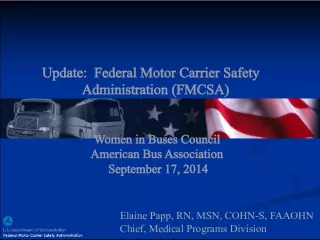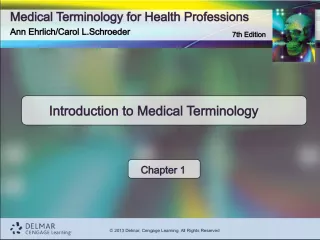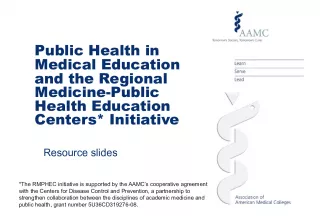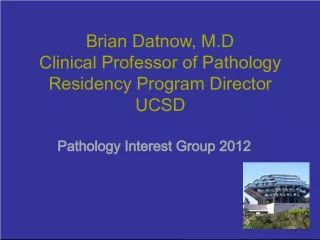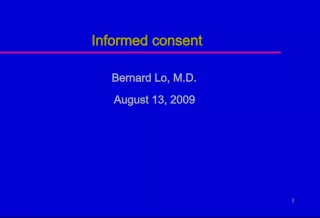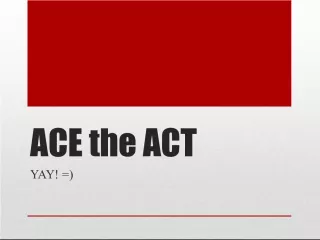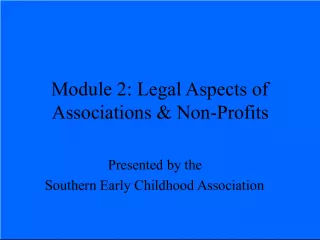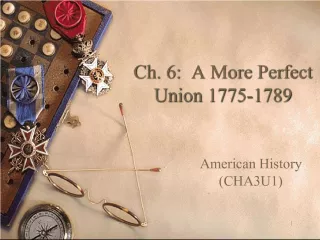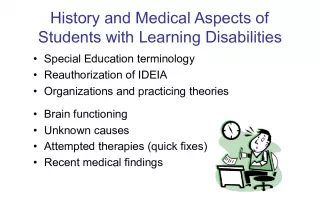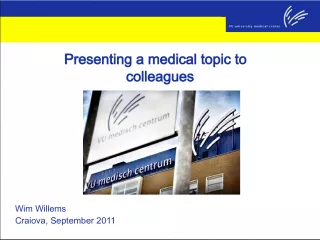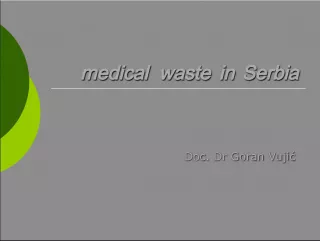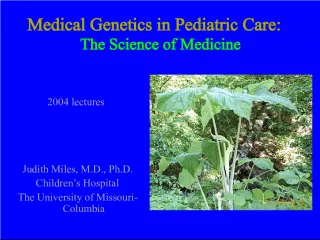Introduction to Association of American Medical Colleges (AAMC)
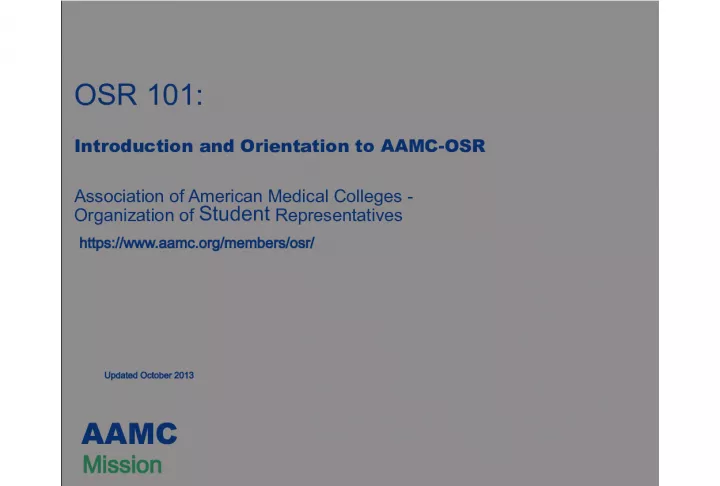

AAMC is a non-profit organization comprising of medical schools, teaching hospitals, academic societies & major healthcare systems. AAMC's mission is to improve healthcare access and quality through academic medicine.
- Uploaded on | 1 Views
-
 fortunatoalves
fortunatoalves
About Introduction to Association of American Medical Colleges (AAMC)
PowerPoint presentation about 'Introduction to Association of American Medical Colleges (AAMC)'. This presentation describes the topic on AAMC is a non-profit organization comprising of medical schools, teaching hospitals, academic societies & major healthcare systems. AAMC's mission is to improve healthcare access and quality through academic medicine.. The key topics included in this slideshow are . Download this presentation absolutely free.
Presentation Transcript
1. OSR 101: Introduction and Orientation to AAMC-OSR Updated October 2013 Association of American Medical Colleges - Organization of Student Representatives https://www.aamc.org/members/osr/
2. AAMC Mission The AAMC serves and leads the academic medicine community to improve the health of all. The Association of American Medical Colleges is a nonprofit association of medical schools, teaching hospitals, and academic societies: The Association of American Medical Colleges is a nonprofit association of medical schools, teaching hospitals, and academic societies: 141 accredited U.S. medical schools 17 accredited Canadian medical schools Over 400 major teaching hospitals and health systems, including 90 affiliated health systems and 51 Veterans Affairs medical centers Nearly 90 academic and scientific societies Representing 128,000 faculty members, 75,000 medical students and 110,000 residents
3. Through its many programs and services, the AAMC strengthens the world's most advanced medical care by supporting the entire spectrum of education, research, and patient care activities conducted by our member institutions. The AAMC and our members are dedicated to the communities we serve and steadfast in our desire to earn and keep the public's trust for the role we play in improving the nation's health. AAMC
4. © 2013 AAMC. May not be reproduced without permission. Mission Why We Exist The AAMC serves and leads the academic medicine community to improve the health of all Areas of Impact What We Achieve Medical Education Care Delivery Research Diversity and Inclusion Impact Strategy What We Do Operational Strategy How We Work People Culture Finances Infrastructure Policy & Advocacy Learning & Leadership Integrated Service Programs Member Capacity Building AAMC Strategy Map
6. www.aamc.org American Medical College Application Service (AMCAS) Careers in Medicine (CiM) Electronic Residency Application Service (ERAS) Financial Information, Resources, Services, & Tools for Medical Education (FIRST) Medical College Admission Test (MCAT) Visiting Student Application Service(VSAS) AAMC AAMC Services www.aamc.org/publications AAMC Reporter Washington Highlights AAMC-STAT AAMC Publications
7. Board of Directors Education Health Care Research GSA GIA GBA GEA GIP GDI GWIMS GFA GRA GIR GRAND GRMC GFP GRR GREAT Leadership Forum Mission Panels Groups Groups Councils & Orgs COD COTH CAS ORR OSR CMOG
8. © 2013 AAMC. May not be reproduced without permission. Effective September 2013 AAMC Leadership Team Darrell G. Kirch, M.D. President & CEO Jennifer M. Schlener Chief of Staff Health Care Affairs Joanne M. Conroy, M.D. Chief Health Care Officer Office of the President Scientific Affairs Ann C. Bonham, Ph.D. Chief Scientific Officer Academic Affairs John E. Prescott, M.D. Chief Academic Officer Operations and Services Robert F. Jones, Ph.D. Chief Operating Officer Policy, Strategy, and Outreach Atul Grover, M.D., Ph.D. Chief Public Policy Officer Communications Elisa K. Siegel Chief Communications and Marketing Officer Medical Education Carol A. Aschenbrener, M.D. Chief Medical Education Officer Diversity Policy and Programs Marc A. Nivet, Ed.D. Chief Diversity Officer Information Technology Chief Information Officer Finance and Administration Bernard K. Jarvis, M.B.A., C.P.A. Chief Financial and Administrative Officer Legal Frank R. Trinity, J.D. Chief Legal Officer Human Resources Services Gabrielle Campbell Chief Services Officer Roby Hunt Chief Human Resources Officer Office of the President Learning Constance Filling Chief Learning Officer Diana Bourke
9. Board of Directors Decision by consensus With one voice Coalition participant Few standing committees Staff driven How AAMC Operates
10. History of the OSR At the 1971 AAMC Annual Meeting, the OSR was created to: • Facilitate the expression of students' ideas and views • Incorporate students into the governance of the AAMC • Foster the exchange of ideas among students and other concerned groups • Facilitate students' action on health care issues
11. Purpose of the OSR The OSR was formed in 1971 to: • Advance leadership skills • Regularly communicate • Assess and represent • Provide a forum To provide a forum through which medical students can communicate about medical education, research, and patient care
12. Mission of the OSR The OSR provides medical students with a voice in academic medicine at the national level and fosters student involvement and awareness at the local level . National level and local level Actively participate in directing students’ educations Representation The OSR ensures that medical students actively participate in directing their educations , preserving their rights, and delineating their professional responsibilities. The OSR fulfills a unique role among medical student organizations: It provides medical students with representation in the AAMC, the nation’s largest association dedicated solely to the advancement of academic medicine.
13. OSR Strategic Goals Strategic Goals To provide medical student input on issues addressed by the AAMC and state and federal governments that will impact student education, quality of life, or professional development. To facilitate communication between student bodies of different medical schools and between medical student organizations regarding issues relevant to medical student life and education. To develop and implement OSR initiatives and aid in the development and implementation of AAMC initiatives.
14. OSR Strategic Goals Strategic Goals To assure that all medical students possess equal freedom and opportunity to pursue the career directions of their choice. To assure a safe, supportive learning environment free of abuse, unreasonable health risks, bias, and inequities. To advance the development of leadership skills among medical students through participation in local and national OSR positions. To encourage education techniques and objectives that provide medical students with the intellectual skills, professional standards, and knowledge required to meet the needs of an evolving health care system.
15. OSR National Priorities • ACGME U.S. residency program match data • Assuring the continued strength of the academic environment under health care reform and managed care • Career planning • Curriculum changes & innovations • Diversity in medical education • GLBTI issues • Guidelines for use of medical interpreter services • Humanism in medicine • Holistic admissions • Institutional mental health services and resources • Joining Forces Initiative • National Board of Medical Examiners' issues • National Resident Matching Program issues • Student debt and the cost of medical education • Student healthcare and insurance
16. AAMC Arnold P. Gold Foundation Humanism in Medicine Award The OSR administers the award and the recipient is announced and honored during a formal awards ceremony during the AAMC Annual Meeting each fall. Supported by the Arnold P. Gold Foundation, the AAMC annually recognizes a medical school faculty physician who exemplifies the qualities of a caring and compassionate mentor in the teaching and advising of medical students. For more information: https://www.aamc.org/members/osr/humanism/
17. OSR Representation OSR Representatives Includes one primary and three alternate institutional representatives from each of the 141 U.S. AAMC member medical schools. Includes one primary and three alternate institutional representatives from each of the 141 U.S. AAMC member medical schools. Elected by their medical schools to monitor activities at their institutions, represent student opinions to the OSR Administrative Board (Ad Board), and relay national OSR and AAMC priorities to the students and staff of their institutions. OSR Associate Representatives Medical students who are enrolled in Canadian medical schools. Members of the AAMC Are institutions rather than individuals; the AAMC does not offer individual memberships.
18. What is the Role of an OSR Rep? • Be aware of student concerns at your school: know your constituents. • Share these concerns with the OSR / OSR Ad Board • Learn about the OSR/AAMC and the resources available to you and the student population • Promote the initiatives of the OSR: Humanism in Medicine, diversity, Careers in Medicine, joining forces initiative, student debt, health insurance, etc. • Disseminate information from the OSR to your school’s students and administration. • Elect officers of the OSR who will represent all students to the AAMC.
19. OSR Meetings AAMC Annual Meeting Held annually every fall (OSR portion typically runs Friday-Sunday) • Nov. 1-6, 2013 – Philadelphia, PA • Nov. 7-12, 2014 – Chicago, IL • Nov. 6-11, 2015 – Baltimore • Nov. 11-16, 2016 – Seattle • Nov. 3-8, 2017 – Boston OSR Regional Meetings Held annually every spring in conjunction with Group on Student Affairs (GSA). Each region meets separately or jointly. 2014 GDI/GSA/OSR National Regional Spring Meeting (all 4 regions) April 26-29 San Diego, CA
20. • Attend session topics of particular interest to your school. • Attend regional and general meetings for updates on various issues in medical education • Share information/input via posters, networking, and discussion at business meetings New projects at your school Issues at your school Give input regarding national issues • Vote for national and regional officers • Network outside of OSR with other meeting attendees OSR Meetings At the meetings:
21. • Return to your school and Share what you’ve learned Discuss rising national issues Get input from your fellow students • Communicate with the student government, student affairs dean, and head Dean • Communicate with students via e-mail, newsletters, etc. • Report back to the OSR Ad Board OSR Meetings After the meetings:
22. National Delegates (1 year position) Elected to work on the following interest areas: • Communications • Community & Diversity • Legislative Affairs • Medical Education • Student Affairs OSR Leadership OSR Chair (3 year position) • Chair-Elect (1 year) • Chair (1 year) • Immediate Past Chair (1 year) Four Regional Chairs (1 year position) • Central • Northeast • Southern • Western OSR Administrative Board “Ad Board” 12 medical students Student Member on AAMC Board of Directors serves as Ex-Officio Member
23. Regional Officers Elected during regional meetings every spring Regional Chairs (1 year position) Elected from each region in the spring and take office in fall • Central • Northeast • Southern • Western Regional Delegates (1-year position) Five are elected in each region to work with National Delegates and Regional Chairs. Take office in the spring, upon election. • Communications • Community & Diversity • Legislative • Medical Education • Student Affairs OSR Regional Officers
24. OSR Staff AAMC Headquarters Washington, D.C. Ally Anderson, M.A., aanderson@aamc.org OSR Director, Student & Community Service Programs Monique Mauge, mmauge@aamc.org Administrative Specialist Shannon Boone, sboone@aamc.org Senior Administrative Associate
25. Ad Board OSR Communications OSR Reps Med Students & Administrators Email Conference Calls OSR Ad Board Meetings Annual & Regional Meetings Web site Email, List-serve OSR Newsletter Annual & Regional Meetings Email, List-serve Web site OSR Newsletter Surveys Annual & Regional Meetings Web site Email, List-serve Flyers & Info Sheets Student Organizations Meetings with Deans Presentations & Reports Web site Email, List-serve Flyers & Info Sheets Student Organizations Meetings with Deans Presentations & Reports
26. Additional Opportunities OSR Liaisons OSR Reps are selected to serve as liaisons to various committees. Examples: Careers in Medicine Advisory Committee ERAS (Electronic Residency Application Service) Group on Student Affairs Committees (5) Holistic Review Advisory Committee National Board of Medical Examiners Student Survey Advisory Group Women in Medicine & Science Steering Committee
27. What are Your Resources? AAMC web site: https://www.aamc.org OSR web site: https://www.aamc.org/members/osr Medical Student and OSR resource page: https://www.aamc.org/members/osr/programsandresources/ OSR Representatives’ Directory OSR Communications: https://www.aamc.org/members/osr/communications/ National, regional, and legislative affairs listserves and updates
28. Resources I wish I had known about when I became an OSR Rep: The wheel has already been invented! • OSR Handbook 2013: everything about the OSR • OSR effective practices guidelines : how to share info about the OSR • How to share information at your home institution • How to start a local OSR interest group • OSR FAQs • Results of OSR Listserve Questionnaires • OSR Medical Education Resources • OSR Legislative Affairs Resources • Who are the current regional and national OSR leaders? When in doubt – ask Ally! No issue or question is too small.
29. Need to contact an OSR rep? OSR Representatives’ Directory
30. OSR Elections / Position Descriptions https://www.aamc.org/members/osr/representation/49310/national_ officers.html OSR Chair-Elect (3 year position) You must be your school's primary representative by November 2 before you are eligible to run for office. 5 National Delegates (1 year position, elected at large) · National Delegate for Communications · National Delegate for Community and Diversity · National Delegate for Legislative Affairs · National Delegate for Medical Education · National Delegate for Student Affairs Please be sure to check with your student affairs dean before running for national office to ensure your school’s support to participate and attend the 4 OSR Ad Board meetings. Nominations will open at OSR Business Meeting Saturday morning, close at 4:00 PM Saturday.
31. Welcome to the AAMC-OSR!
